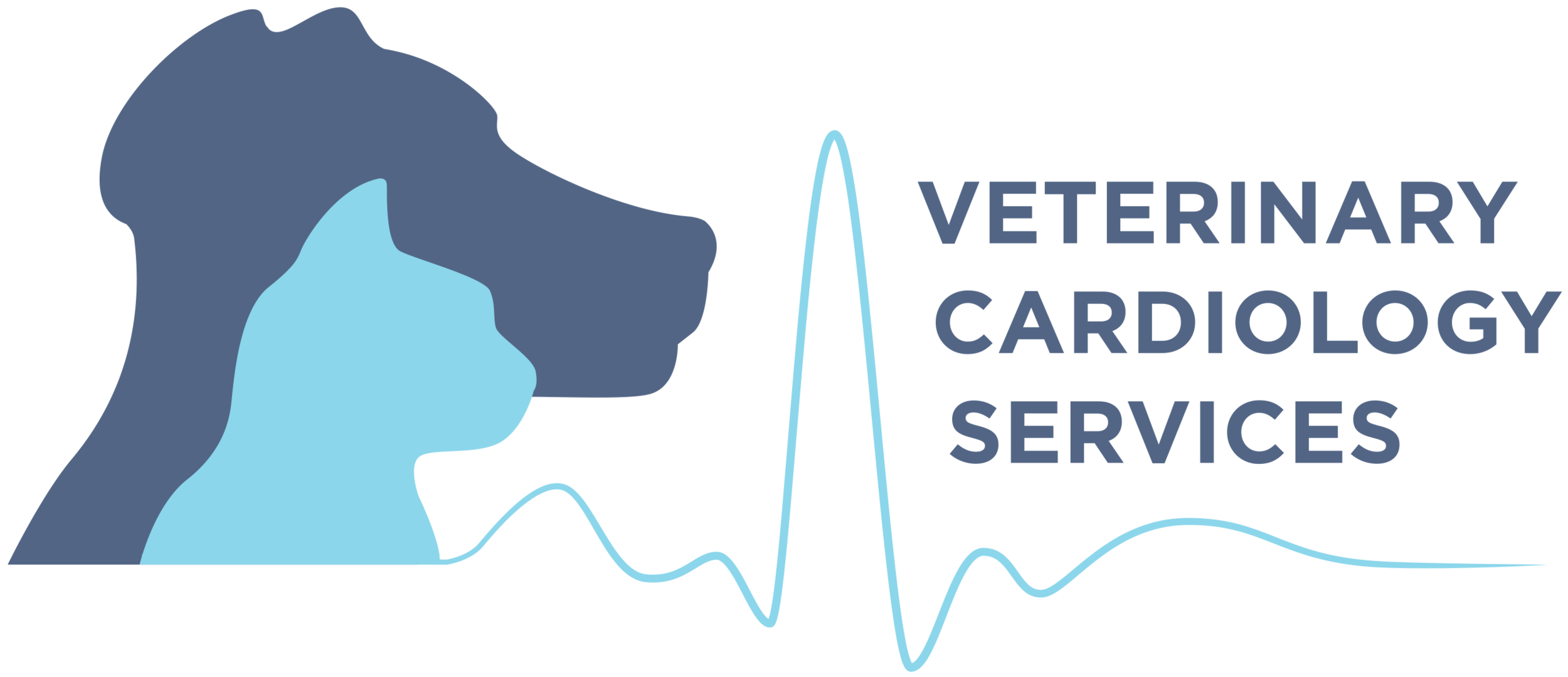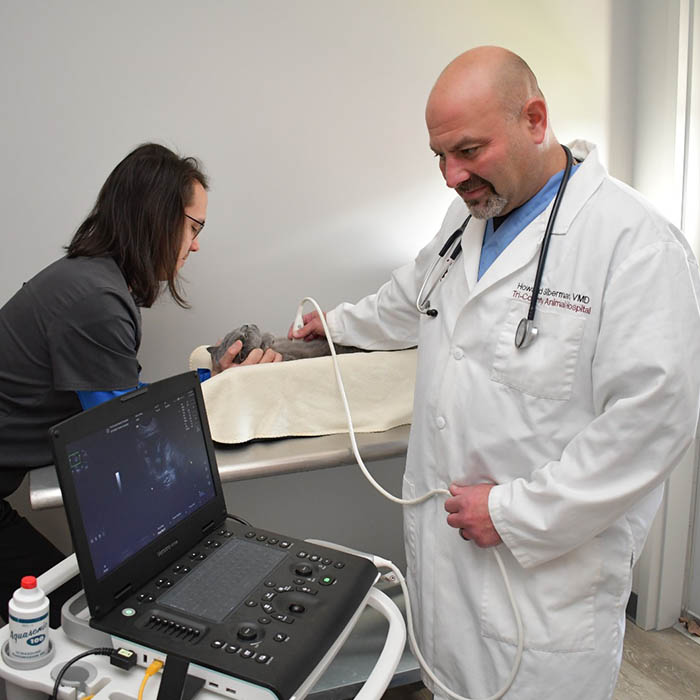A Beginner’s Guide to Understanding CT Scans For Dogs}
Checking Out the Crucial Providers Provided by a Veterinary Cardiologist: Comprehending Ultrasound and CT Scan Techniques
Vet cardiologists play a crucial function in the health and wellness of family pets by diagnosing and dealing with different heart conditions. They utilize innovative imaging strategies, such as cardiac ultrasound and CT scans, to offer exact examinations. Each technique has its distinct benefits and applications. Comprehending these techniques is essential for pet dog proprietors looking for the most effective care for their friends. What aspects should animal proprietors think about when picking between these analysis devices?

The Role of Veterinary Cardiologists in Family Pet Medical Care
Veterinary cardiologists play an important role in the health care of pet dogs, concentrating particularly on detecting and dealing with heart-related conditions. They possess specialized training that enables them to translate intricate analysis examinations and recognize numerous cardio concerns. These professionals utilize innovative techniques, such as echocardiography and electrocardiography, to examine heart feature and framework accurately.Veterinary cardiologists likewise establish tailored treatment plans that might consist of drugs, way of living alterations, and, in some instances, medical interventions. Their expertise encompasses informing pet proprietors concerning heart health and wellness, highlighting the significance of routine check-ups and very early discovery of prospective problems. Cooperation with basic veterinarians is important, as it guarantees thorough treatment for pets with suspected cardiac concerns. By providing specialized services, vet cardiologists substantially enhance the lifestyle for animals and give peace of mind for their proprietors, enhancing the value of heart health in overall family pet health.
Typical Cardiac Issues in Animals
Common heart problems in animals can greatly influence their health and wellness and lifestyle. Heart whisperings, various kinds of cardiomyopathy, and congenital heart issues are among one of the most common problems that veterinarians run into. Board Certified Veterinary Cardiologist. Understanding these problems is necessary for pet dog owners to ensure prompt diagnosis and ideal treatment
Heart Murmurs in Pets
Heart murmurs can be a resource of worry for pet owners, they are not constantly indicative of major health and wellness concerns. A heart murmur is an irregular noise produced by unstable blood circulation within the heart. In animals, these whisperings can be brought on by various elements, consisting of hereditary heart flaws, shutoff issues, and even stress and anxiety throughout evaluations. Lots of family pets with heart murmurs lead normal lives without considerable health and wellness influences. To determine the underlying cause, veterinary cardiologists typically use analysis techniques such as echocardiograms and Doppler ultrasounds. Early detection and assessment are vital, as they may assist handle any type of possible cardiac issues efficiently. Animal owners are motivated to consult their veterinarian for a complete analysis if a heart whispering is identified.
Cardiomyopathy Kind Explained
Cardiomyopathy incorporates a team of conditions influencing the heart muscular tissue, causing endangered cardiac feature in family pets. One of the most typical types include expanded cardiomyopathy (DCM), hypertrophic cardiomyopathy (HCM), and limiting cardiomyopathy (RCM) DCM mostly impacts canines, triggering the heart to enlarge and weaken, which reduces its capability to pump blood efficiently. On the other hand, HCM is more widespread in pet cats, defined by the thickening of the heart wall surfaces, usually leading to obstructed blood circulation. RCM, though much less typical, occurs when the heart muscular tissue ends up being rigid, restricting its capability to loaded with blood. Each kind offers unique obstacles in medical diagnosis and treatment, demanding specialized veterinary cardiological evaluation to ensure peak administration and look after impacted pet dogs.
Genetic Heart Problems
Genetic heart flaws represent a considerable category of cardiac issues in pet dogs, distinct from gotten problems such as cardiomyopathy - Cancer Veterinary Near Me. These flaws are architectural irregularities present at birth, influencing the heart's normal function. Usual types consist of license ductus arteriosus, ventricular septal problems, and pulmonic constriction. Symptoms might vary commonly, varying from moderate to extreme, and can consist of exercise intolerance, coughing, and problem breathing. Early medical diagnosis via sophisticated imaging strategies like ultrasound is necessary for reliable management. Veterinary cardiologists play a vital role in determining these problems and advising suitable treatment choices, which might include medical administration or medical treatment. Acknowledging hereditary heart problems enables better results and improved lifestyle for impacted pet dogs
Understanding Heart Ultrasound: Exactly How It Works
A significant number of vet practices currently make use of cardiac ultrasound as a crucial diagnostic device for reviewing heart health and wellness in animals. This non-invasive method uses high-frequency audio waves to create pictures of the heart's structure and function. During the treatment, a veterinary service technician applies a gel to the pet's chest and uses a transducer to send out ultrasound waves. These waves jump off the heart and surrounding frameworks, generating real-time images on a monitor.Veterinarians can evaluate numerous aspects of heart wellness, consisting of chamber size, wall motion, and shutoff feature. Additionally, cardiac ultrasound enables the discovery of problems such as liquid build-up and hereditary heart issues. This technique is important for detecting conditions that might not show up with common radiographs. By giving detailed information regarding the heart's anatomy and performance, heart ultrasound help in developing efficient treatment prepare for animals dealing with cardiovascular disease.
The Value of CT Scans in Diagnosing Heart Conditions
Just how do CT scans improve the diagnosis of heart conditions in vet medicine? CT scans provide comprehensive cross-sectional photos of the heart and bordering structures, allowing veterinarians to visualize intricate physiological connections. This imaging strategy is especially advantageous in determining genetic heart issues, cardiac growths, and irregularities in capillary. By using advanced imaging algorithms, CT scans can evaluate heart chamber dimensions and function, using an extensive sight that might be challenging to achieve with standard methods.Additionally, CT angiography can imagine blood flow and recognize locations of stenosis or blockage, which is important for intending potential treatments. The speed and precision of CT scans additionally help with fast diagnoses, important in emergency situation situations. Eventually, the incorporation of CT scans into vet cardiology significantly improves the precision of diagnoses, making it possible for targeted treatment plans and enhancing person outcomes for animals experiencing heart problems.
Comparing Ultrasound and CT Scan Methods
While both ultrasound and CT scans are vital tools in veterinary cardiology, they use distinctive benefits and limitations that influence their use in identifying heart problems. Ultrasound, or echocardiography, gives real-time imaging of the heart's framework and feature, allowing veterinarians to assess heart chambers, valves, and blood flow. It is specifically reliable for evaluating conditions like heart disease and cardiomyopathy. Ultrasound may be limited in imagining certain anatomical structures due to client size or obesity.In comparison, CT checks offer comprehensive cross-sectional images of the heart and bordering tissues, making them optimal for identifying architectural problems, growths, or vascular problems. CT scans supply complete insights, they call for sedation and might involve radiation direct exposure. Inevitably, the selection between ultrasound and CT scans relies on the particular medical circumstance, the individual's condition, and the details needed go to my site for an accurate medical diagnosis.
Treatment Options Readily Available Through Vet Cardiology
Veterinary cardiology offers an array of therapy choices tailored to attend to various heart disease in animals. Therapy plans often begin with lifestyle alterations, including diet regimen changes and exercise modifications, intended at enhancing total heart health and wellness. Drugs play an important duty, with cardiologists prescribing medicines such as diuretics, beta-blockers, and ACE inhibitors to take care of symptoms and enhance cardiac function.In extra severe instances, interventional treatments, such as balloon valvuloplasty or stent placement, might be essential to minimize clogs or improve blood flow. For particular congenital heart flaws, surgical options may be checked out to fix architectural problems. In addition, continuous surveillance and follow-up care are vital components of a complete treatment strategy, permitting for prompt modifications based upon the pet dog's action to therapy. Generally, vet cardiology focuses on providing reliable, personalized care to maximize the wellness and well-being of pet patients with heart conditions.
Just how to Prepare Your Pet Dog for a Heart Analysis
Preparing an animal for a heart evaluation is important to assure exact outcomes and a smooth procedure. Owners must first schedule the appointment with the veterinary cardiologist and go over any kind of details demands or concerns. It is a good idea to keep food for at least 12 hours before the evaluation, as this aids enhance imaging high quality throughout procedures like ultrasound or CT scans.Additionally, maintaining a calm setting on the day of the consultation can help in reducing the animal's anxiousness. It is useful to bring along any type of appropriate medical documents, consisting of previous examinations and medicines (Ultrasound For Dogs). Proprietors ought to additionally make particular that their pet dog is comfortable and leashed during transport to the facility. Acquainting themselves with the evaluation process can minimize concerns and help in asking notified inquiries throughout the consultation. By complying with these actions, try this out proprietors can add significantly to the efficiency of the heart assessment
Often Asked Questions
How much time Does a Heart Ultrasound or CT Check Take?
The period of a heart ultrasound normally ranges from 30 to 60 mins, while a CT scan might take approximately 15 to half an hour. Factors such as the client's condition can affect these time estimates.

Exist Any Kind Of Threats Related To These Diagnostic Treatments?

Can I Stick With My Family Pet During the Treatment?
The vet center's plan usually dictates whether pet proprietors can stay during treatments. While some clinics encourage proprietor presence for comfort, others might need splitting up to assure safety and ideal conditions for analysis imaging.
Exactly how Much Do These Diagnostic Tests Typically Price?
The prices of diagnostic examinations, such as ultrasound and CT scans, usually differ based upon area and facility. Normally, costs range from a few hundred to over a thousand dollars, mirroring the complexity and innovation included.
What Is the Healing Process After a Cardiac Analysis?
The recovery process after a cardiac assessment involves keeping an eye on the animal for any prompt reactions, ensuring comfort, and limiting physical activity. Veterinarians generally give post-evaluation guidelines to assist animal proprietors throughout this important recovery period. Heart whisperings, various types of cardiomyopathy, and genetic heart defects are amongst the most prevalent problems that vets come across. A heart whispering is an irregular sound produced by turbulent blood circulation within the heart. Cardiomyopathy incorporates a group of conditions impacting the heart muscular tissue, leading to compromised cardiac function in pets. Hereditary heart issues stand for a significant category of cardiac issues in pet dogs, check here distinct from gotten conditions such as cardiomyopathy. Ultrasound, or echocardiography, gives real-time imaging of the heart's structure and feature, enabling vets to analyze heart chambers, shutoffs, and blood flow.